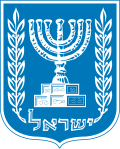| Part of a series on the |
 |
|---|
The 2020 Israeli legislative election was held using closed list proportional representation. Each party presented a list of candidates to the Central Elections Committee prior to the election. If a list contains more than 40 people, only the first 40 are shown.